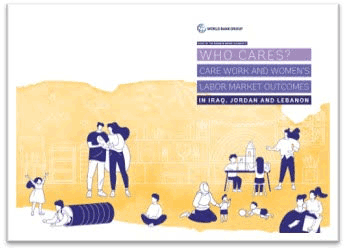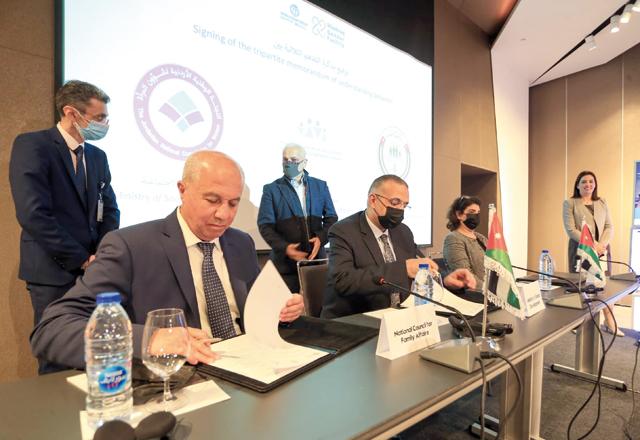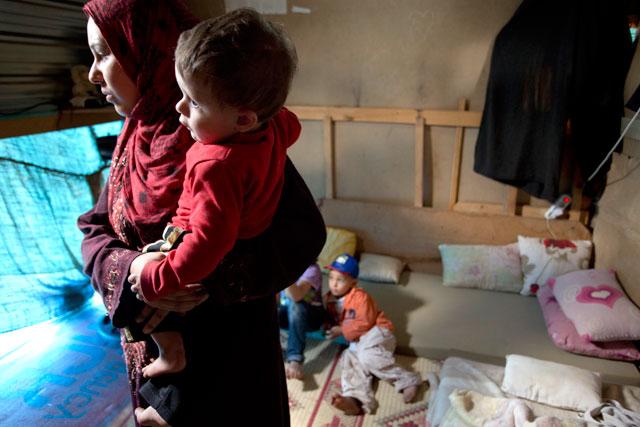You are here
Strengthening care policies in Mashreq critical to improve women’s labour force participation — report
By JT - Mar 02,2023 - Last updated at Mar 02,2023

The cover of the report (Image courtesy of World Bank website)
AMMAN — Under the Patronage of Prime Minister Bisher Khasawneh, the World Bank Group on Thursday launched its second State of the Mashreq Women Report titled: “Who Cares?” - Care Work and Women’s Labour Market Outcomes in Iraq, Jordan and Lebanon on Thursday.
The report examines the potential for care policies to improve women’s labour market outcomes in a region where female labour force participation is among the lowest in the world, according to a World Bank Group statement.
The burden of unpaid care work falls disproportionately on the shoulders of women in the Mashreq. Short of appropriate support mechanisms within their households or from the state, women in Iraq, Jordan and Lebanon often find themselves having to choose between staying out of the labour market or working in a double shift, at home and in the workplace.
While the structure and generosity of leave policies vary across countries of the Mashreq, they generally reinforce gendered allocation of care responsibilities. Moreover, with limited free public service provision and financial support to households, quality childcare services on the market are largely unaffordable, the statement said.
For many mothers, especially for those with lower education, the cost of childcare services available in the market constitutes a sizeable share of actual or potential labour market earnings, ranging from 25 per cent in Jordan to more than 100 per cent in Lebanon. As a result, enrollment in childcare services remains low in Mashreq countries.
“Existing care policies in Mashreq are not well aligned with the objective of supporting women and mothers who wish to stay or join the labour market’ said Jean-Christophe Carret, World Bank Mashreq Country Director.
“Supporting the development of the care sector would have tremendous benefits for children, parents and the overall economies of Iraq, Jordan and Lebanon,” Carret added.
Every day, mothers in Mashreq spend twice as much time as fathers taking care of children and three times as much time as fathers on domestic chores. For mothers who are employed, their typical “workday” — taking into consideration both paid and unpaid work — is 12 to 14 hours long. Not surprisingly, for every hour that a woman spends on unpaid care work, the probability of her being active on the labour market decreases by 1 to 3 percentage points.
“There is untapped demand for quality and affordable childcare services,” said Silvia Redaelli, Senior Economist and one of the authors of the report.
“Addressing existing constraints at the level of the supply of quality and affordable services can lead to sizeable improvements in female labour force participation and employment,” Redaelli added.
Despite prevailing gender norms that expect mothers to be the prime caretaker, many mothers of children below primary school age who are currently not using any sort of childcare services would be interested in using them if available and in joining the labour market.
Meeting untapped demand for childcare services in Jordan and Lebanon could increase female labour force participation by 7 percentage points if provided for free, and by 2 percentage points if available for pay, the statement said.
In Iraq, the impact of increasing childcare services on female labour force participation is more limited, with an expected increase of only 1.7 percentage points if childcare would be provided for free and by 0.5 percentage points if available for pay.
The report further finds that more than 50 per cent of women in Jordan and Lebanon, and about 16 per cent in Iraq, express interest in working in the care sector, either by starting a daycare business and/or working for pay (full time or part time) in a daycare centre.
Based on the analysis and a review of international best practice, the report identifies the need for a three-pronged approach to achieve: (i) more equitable distribution of the unpaid care work burden within the household; (ii) improved state support to address households’ care needs, particularly for the most vulnerable households; and (iii) an enabling environment for efficient provision of quality childcare services.
This second State of the Mashreq Women report was produced as part of the Mashreq Gender Facility.
Related Articles
AMMAN — The findings of a study titled “Childcare Services in Jordan: Assessment of Supply and Demand” revealed that low-income households i
AMMAN — Women’s labour force participation in the Mashreq countries (eastern Arab countries) remains among the lowest in the world and is li
AMMAN — A recent World Bank report has sparked a call to action among experts in Jordan and the Mashreq region.














